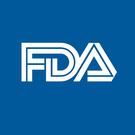Articles tagged with: Farydak
News»

Panobinostat had an important appointment this morning with a group of oncologists.
The appointment did not go so well.
The Oncologic Drugs Advisory Committee (ODAC) of the U.S. Food and Drug Administration (FDA) conducted a four-hour review of panobinostat (Farydak) earlier today.
At the end of the meeting, members of the committee were asked to vote whether they felt the benefits of panobinostat as a potential treatment for relapsed myeloma outweighed its risks.
Five committee members voted "no." Only two members voted "yes."
The advisory committee's vote is a serious …
News»

The Oncologic Drugs Advisory Committee of the U.S. Food and Drug Administration will convene this morning to review panobinostat, and The Myeloma Beacon will provide live coverage of the meeting.
Beacon staff members will post frequent updates at the webpage for this article as the meeting proceeds. Coverage will begin at the start of the meeting at 8 a.m. Eastern Time, which is when the review of panobinostat (Farydak) is scheduled to begin.
The Swiss pharmaceutical company Novartis (NYSE:NVS) submitted an application to the Food and Drug Administration (FDA) this March …
News»

As reported earlier today by The Beacon, the U.S. Food & Drug Administration (FDA) this morning released key documents related to the agency’s review of panobinostat as a potential new treatment for multiple myeloma.
The documents consist of briefing reports, agendas, and other supporting material for the meeting of the FDA’s Oncologic Drugs Advisory Committee (ODAC) this coming Thursday. The morning session of that meeting will be devoted to a review of panobinostat (Farydak), which is being developed by the Swiss pharmaceutical company Novartis (NYSE:NVS).
Among the documents released this morning, two …
News»

The U.S. Food and Drug Administration this morning released important information related to its Oncologic Drugs Advisory Committee meeting scheduled for this Thursday, when the committee will review data related to the application by Novartis (NYSE:NVS) to have panobinostat (Farydak) approved as a new treatment for multiple myeloma.
In addition to a draft agenda and draft committee roster, the Food and Drug Administration (FDA) released briefing information for the committee members and a question about the risk/benefit profile of panobinostat that the advisory committee will discuss and vote on …
News»

It seems that panobinostat’s review by the U.S. Food and Drug Administration (FDA) may be on track after all.
A spokeswoman for Novartis (NYSE:NVS), the Swiss pharmaceutical company that is developing panobinostat as a potential new myeloma therapy, has told The Beacon that, contrary to a Beacon report published yesterday, there has not been a delay in the FDA’s review of the drug’s marketing application.
With panobinostat’s review proceeding according to the expected timetable, there need not be concern that the FDA has uncovered unexpected issues with the drug. …
News»

The U.S. Food and Drug Administration (FDA) is giving itself an extra two to three months to decide whether to approve panobinostat as a new treatment for multiple myeloma.
The FDA had been expected to reach a decision on the panobinostat new drug application by last Tuesday. Now, however, a decision is unlikely to occur until the end of November or sometime in December.
The Swiss pharmaceutical company Novartis (NYSE:NVS) filed an application with the FDA in March to have panobinostat, in combination with Velcade (bortezomib) and
Press Releases»
- Results show statistically significant and clinically relevant increase in median progression-free survival with LBH589 plus bortezomib and dexamethasone[1]
- LBH589, a first-in-class treatment for patients with relapsed/refractory multiple myeloma if approved, helps extend benefit of standard-of-care therapy[1]
- First Phase III study to demonstrate superiority of a three-drug over two-drug combination in this patient population[1]
- Multiple myeloma, the second most common blood cancer, is incurable; most patients will relapse or become refractory so new treatments are needed[2],[3]
…
